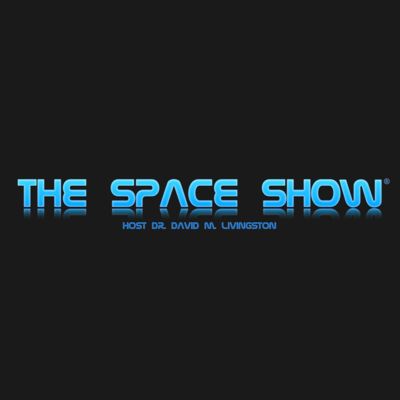The Space Show focuses on timely and important issues influencing the development of outer-space commerce, space tourism,space exploration and space development. The Space Show is committed to facilitating our becoming a space-faring nation and society with a growing and self-sustaining space-faring economy. The Space Show also focuses on other related subjects of interest to us all.
http://www.thespaceshow.com/
John Strickland, Friday, 3-25-16
Guest: John Strickland; Topics: Mars operations with high mass expeditions & robust bases, Oberth Effect, propulsion needs for Mars. Please direct all comments and questions regarding specific Space Show programs & guest(s) to the Space Show blog which is part of archived program on our website, www.thespaceshow.com. Comments and questions should be relevant to the specific Space Show program. Written Transcripts of Space Show programs are a violation of our copyright and are not permitted without prior written consent, even if for your own use. We do not permit the commercial use of Space Show programs or any part thereof, nor do we permit editing, YouTube clips, or clips placed on other private channels & websites. Space Show programs can be quoted, but the quote must be cited or referenced using the proper citation format. Contact The Space Show for further information. In addition, please remember that your Amazon purchases can help support The Space Show/OGLF. See www.onegiantleapfoundation.org/amazon.htm. We welcomed back John Strickland for the third part of his three part series. For the third in the series, John focused "on Mars operations with high mass expeditions and robust bases, using the Oberth effect to massively lower propulsion needs for Mars. This also covered aero-capture, how to reduce propellant mass and increase expedition mass, base-first policy, crew safety, new interest in reusable ferries, and much more." During the first segment of our 97 minute discussion, John started out by talking about how to get to Mars, the use of cislunar infrastructure, especially at L1, and the use of multiple expeditions. Much of what he talked about in this segment was technical, especially when he addressed km/second needs for orbit, launch, orbit, landing. He was asked about ISRU by Dr. Doug so he spent time discussing that. Near the end of the segment, he was asked if he had a Power Point or otherwise written document summarizing what he was talking about as that would probably make following the discussion easier. He referred us to his 2011 publication which is on the NSS website, ACCESS TO MARS: (Part 1) EARTH TO MARS TRANSIT LOGISTICS ALTERNATIVES, an ISDC presentation from May 18-22, 2011. You can follow along by using this 109 slide document, www.nss.org/settlement/mars/AccessToMars.pdf. John discussed getting to the Martian surface with cargo as well as with humans, the use of different fuels, robotic missions and uses, ISRU, aero-capture, and even the use of advanced propulsion such as Vasimir. He also talked about his space ferry idea. In the second segment, we started with a question from BJohn about crew safety, suggesting that a "crewed Mars lander will carry its ascent stage fully fueled, and not use ISRU. This gives the crew the option to abort to orbit anytime during the landing sequence." John did not agree with his suggestion and explained why his plan provided better safety than what BJohn was suggesting. What do you think? Post your ideas on TSS blog. About seven minutes into the second half, John stopped the discussion to answer his cell phone. This provided an interesting first of a kind break on The Space Show as we heard John's side of the conversation. Moving on after John's phone call, Doug emailed in a question about John's reliance on reusability when it was yet to be proven. See what you think of John's reply. Again, let us know by posting your thoughts on TSS blog. John explained the Oberth Effect and "swing by maneuver." Doug sent in a follow up question asking John how long he suggested crews remain on Mars. John said around 500 days but it would depend on the transfer back to orbit. He then talked about both a conjunction class mission and an opposition class mission. In addition, he referenced zero boil off conditions or ZBO. Please read the rest of the summary @ www.thespaceshow.com
